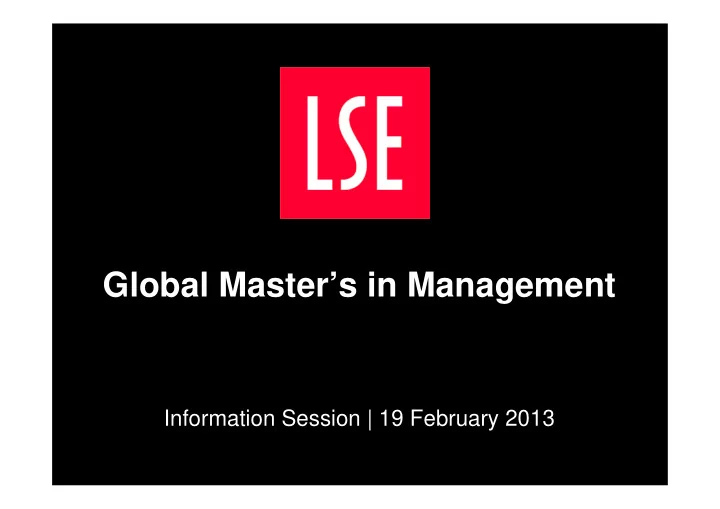

Global Master’s in Management Information Session | 19 February 2013
Global Master’s in Management Taster lecture by Professor Saul Estrin Head of Department of Management
Global Master’s in Management Globalisation and Rebalancing the World Economy
� What is it? � Is it new? � What causes it? � Is it going to change, or stop? � What are the implications � For the world economy � For business
� Emergence of markets not limited by national boundaries � World market for goods and services � Capital market expansion and global financial flows � Labour market expansion and global migration � Emergence of global businesses � Making goods and products to supply a world market (including foreign direct investment) � Division of labour on global scale
What is Globalization – “global interdependence”: � Global markets for � Goods and services � Capital (capital flows) � Labour (migration) � It’s not a new thing……..
1820 1870 1913 1929 1950 1973 1998 Europe 2 10 16 13 9 21 25 USA 2 3 4 3 3 5 10 Latin America n/a 9 10 6 5 5 6 Asia n/a 1 3 3 2 4 9 World 1 5 8 9 6 11 17
� Economic development Creativity + Incentive to individual private gain + competition + “Sound” government = Innovation and growth. � Relies on: � the individual drive to win � supportive and nurturing community � flexible society (immigrants, outsiders) � Contrasting national cultures
Creativity/technology (global market) � Decline in transactions costs of doing business globally � Policy � - Trade policy (e.g., WTO, customs unions e.g. NAFTA, EU) - Abolition of most capital controls - Policies to encourage FDI - Labour skills and migration policy Ideology/Politics � - Triumph of the market - Collapse of communist regimes
Global Master’s in Management www.global-mim.com
Recommend
More recommend